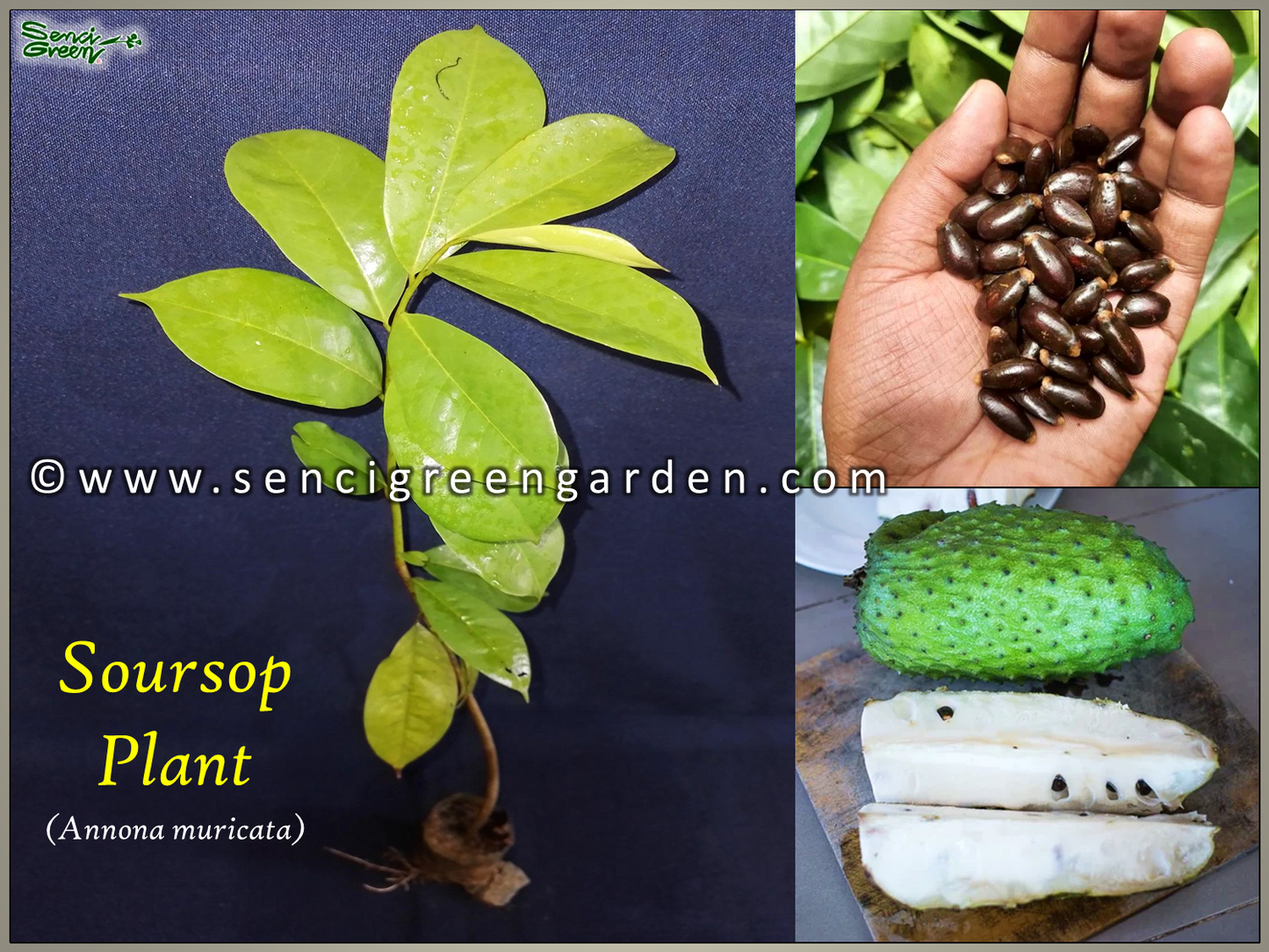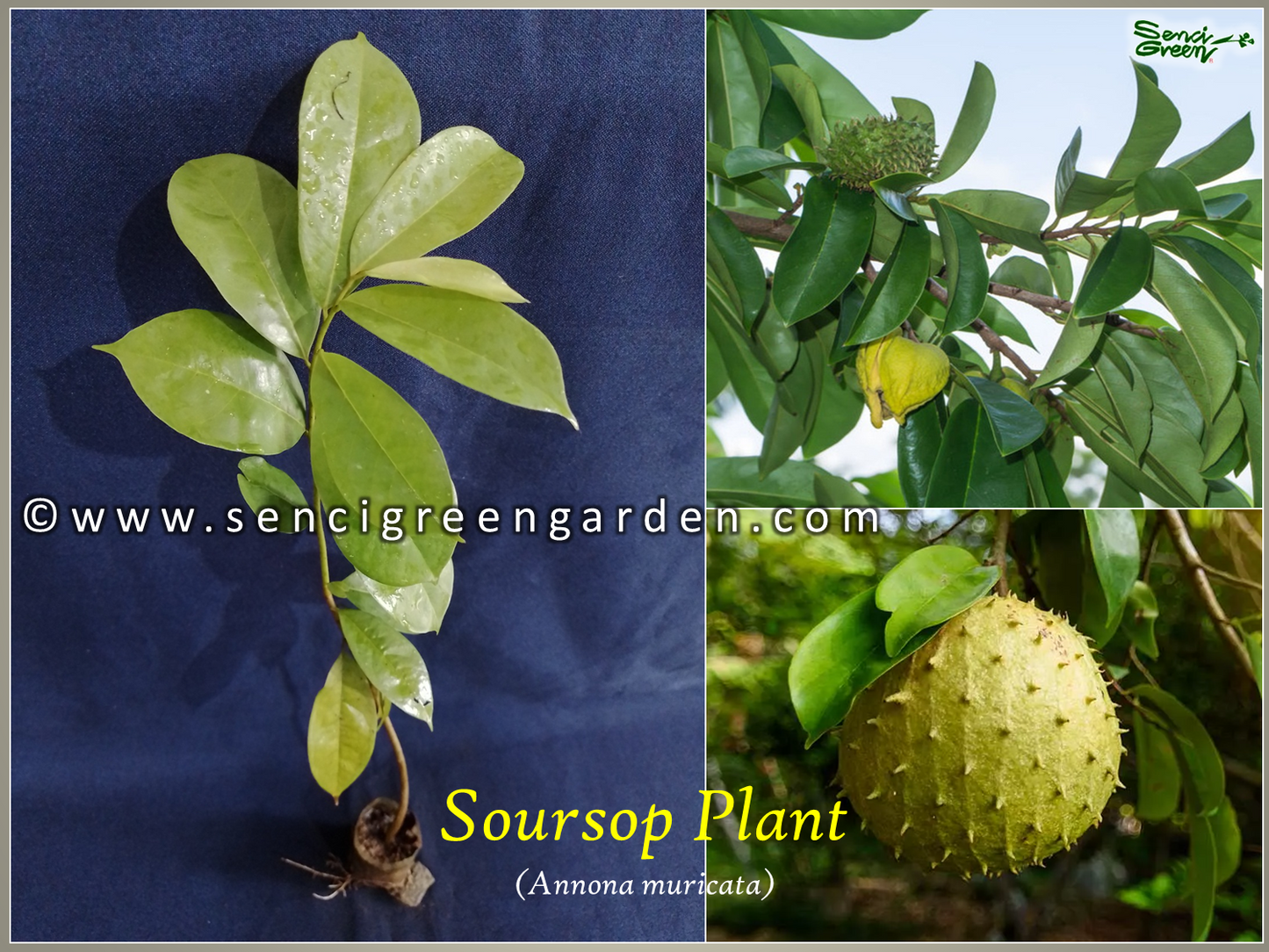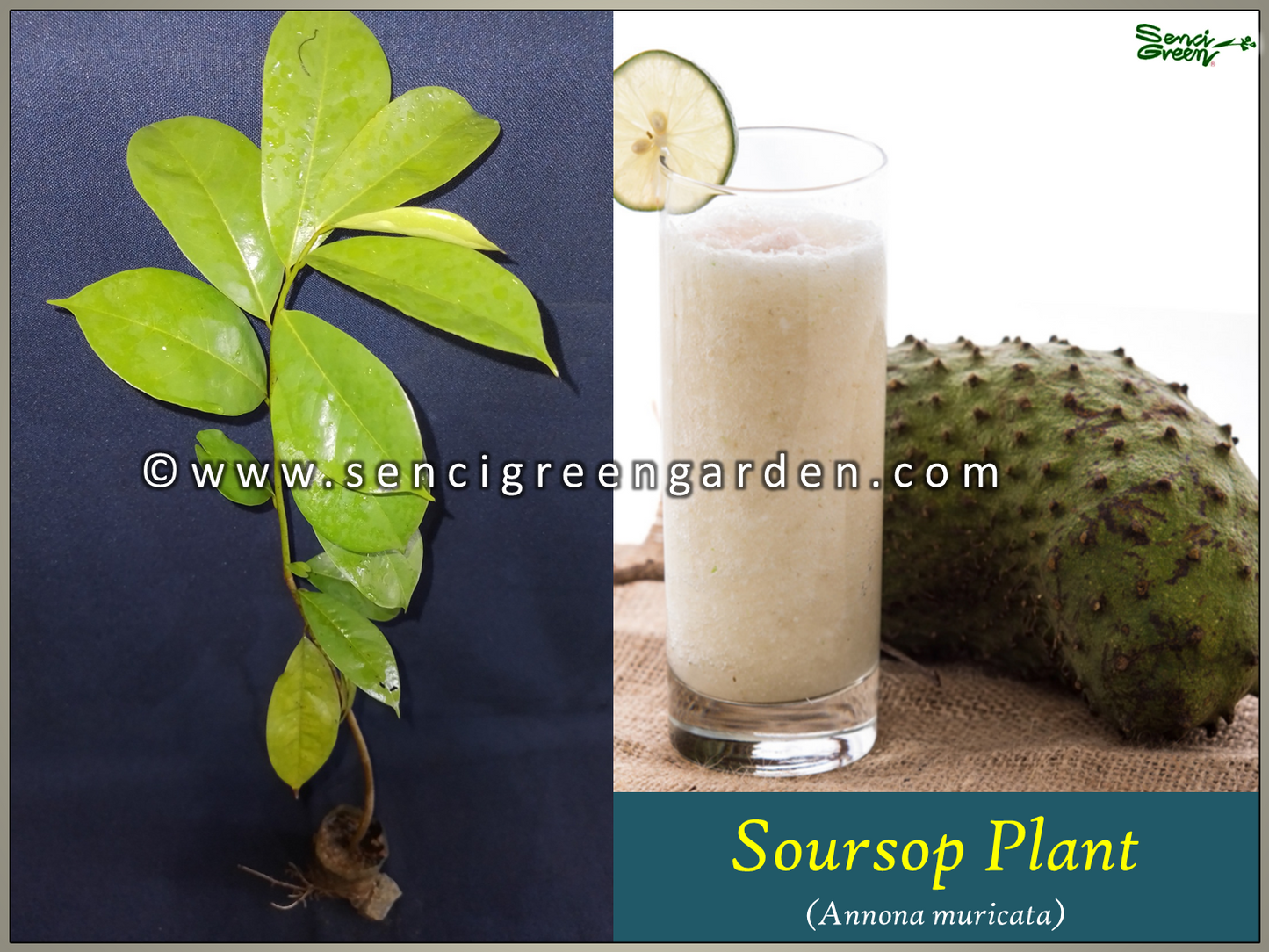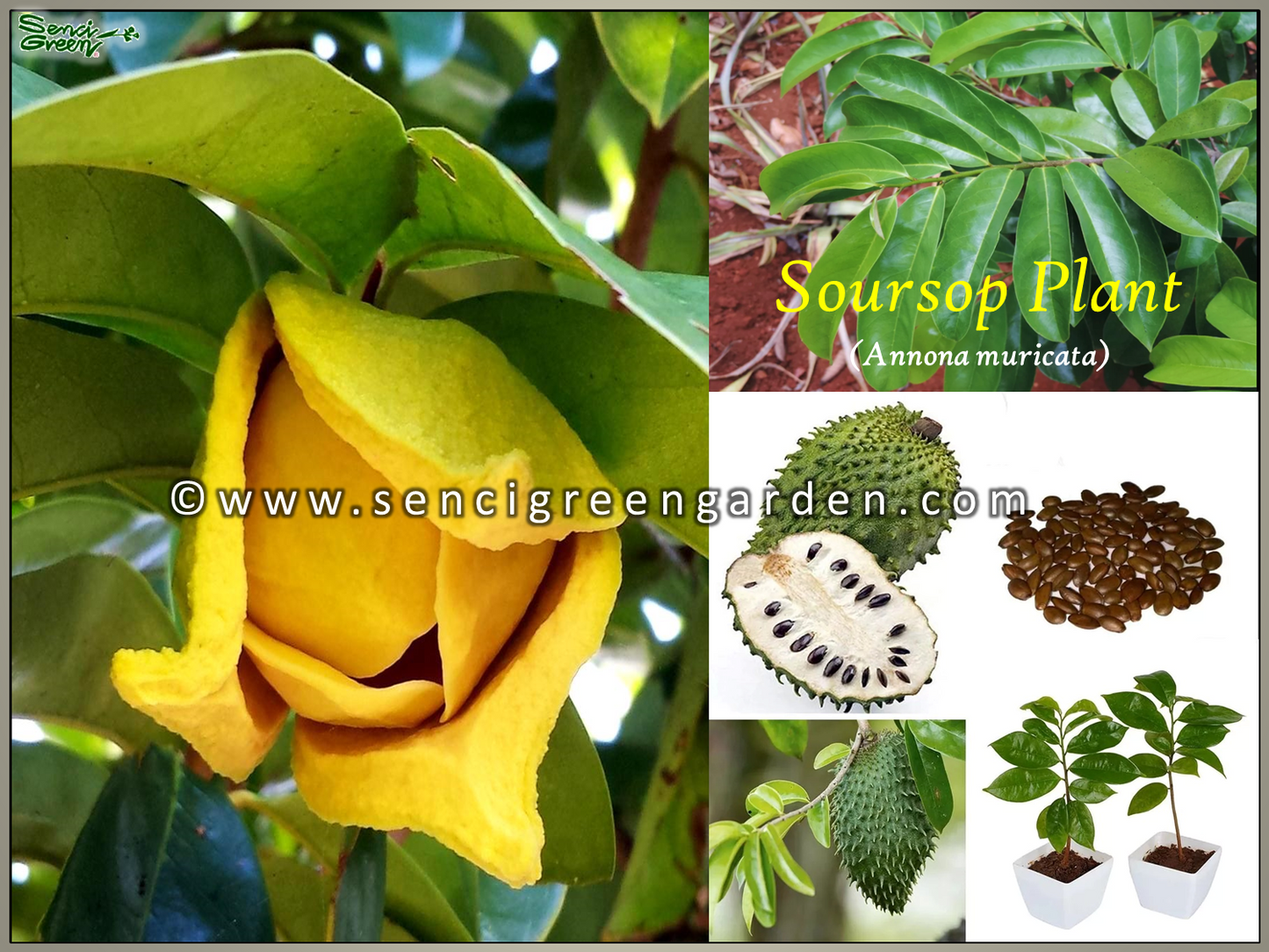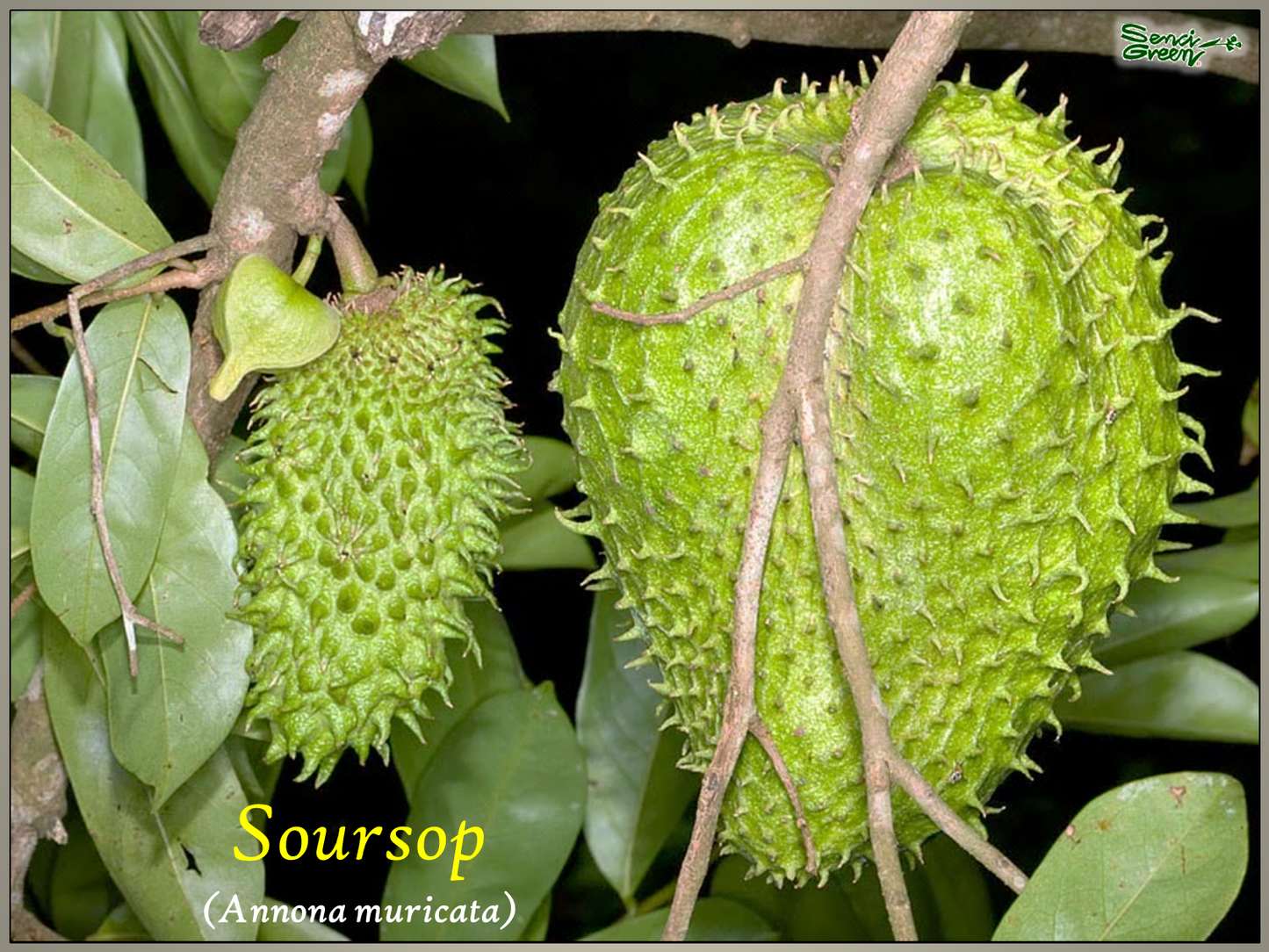Senci Green Garden
Soursop Plant (Annona muricata) 8"-12" Inches Size x1 Plant
Soursop Plant (Annona muricata) 8"-12" Inches Size x1 Plant
Couldn't load pickup availability
Soursop Plant (Annona muricata)
Plant Size : 8"-12" Inches Size
**Annona muricata**, commonly known as Soursop or Graviola, is a tropical evergreen tree native to the Caribbean, Central America, and parts of South America. It belongs to the Annonaceae family, which also includes the cherimoya and the pawpaw.
**Physical Description:**
- **Leaves:** Soursop leaves are glossy and dark green, oblong in shape, and about 6 to 8 inches long. They are alternate and have a smooth texture.
-
- **Fruit:** The fruit of the Soursop is large, heart-shaped, and covered with soft, spiky protuberances. It can grow up to 12 inches long and weigh from 2 to 5 kilograms. The flesh inside is white, fibrous, and juicy, with a sweet-sour flavor reminiscent of a combination of pineapple and strawberry. -
- **Flowers:** The Soursop tree produces distinctive, fragrant flowers that are yellow-green in color. These flowers are quite large and appear solitarily or in small clusters along the branches.
- **Height:** The tree itself can reach heights of 5 to 6 meters (16 to 20 feet) or more, with a relatively short trunk and a broad canopy of branches.
**Cultural Significance:**
- **Culinary Use:** The fruit of the Soursop is consumed fresh, often made into juices, smoothies, ice creams, and other desserts. It is popular throughout its native range and beyond for its unique flavor and nutritional benefits.
- **Medicinal Uses:** Various parts of the Soursop tree, including the leaves, fruit, and seeds, have been traditionally used in herbal medicine. They are believed to have anti-inflammatory, antimicrobial, and antioxidant properties. In some cultures, Soursop is used to treat ailments ranging from infections to digestive issues.
- **Other Uses:** The bark of the Soursop tree has been used for tanning, and the wood is sometimes employed in carpentry.
**Growing Conditions:**
- **Climate:** Soursop trees thrive in warm, tropical climates with high humidity. They are sensitive to frost and prefer temperatures above 5°C (41°F).
- **Soil:** Well-draining, fertile soil is ideal for Soursop cultivation. It can tolerate a range of soil types but prefers slightly acidic conditions.
- **Propagation:** Soursop can be propagated from seeds, which typically germinate within 15 to 30 days. It can also be propagated via cuttings for quicker fruiting.
**Challenges:**
- **Pests and Diseases:** Soursop trees are susceptible to pests like fruit flies and diseases such as anthracnose, which can affect fruit quality and yield.
- **Pollination:** The flowers of the Soursop tree require cross-pollination for fruit set, which may necessitate having multiple trees for optimal fruit production.
In summary, the Soursop plant is not only valued for its delicious fruit but also for its medicinal properties and cultural significance in various tropical regions around the world. Its distinctive appearance and flavor make it a sought-after fruit in both culinary and traditional medicine contexts.
Share
